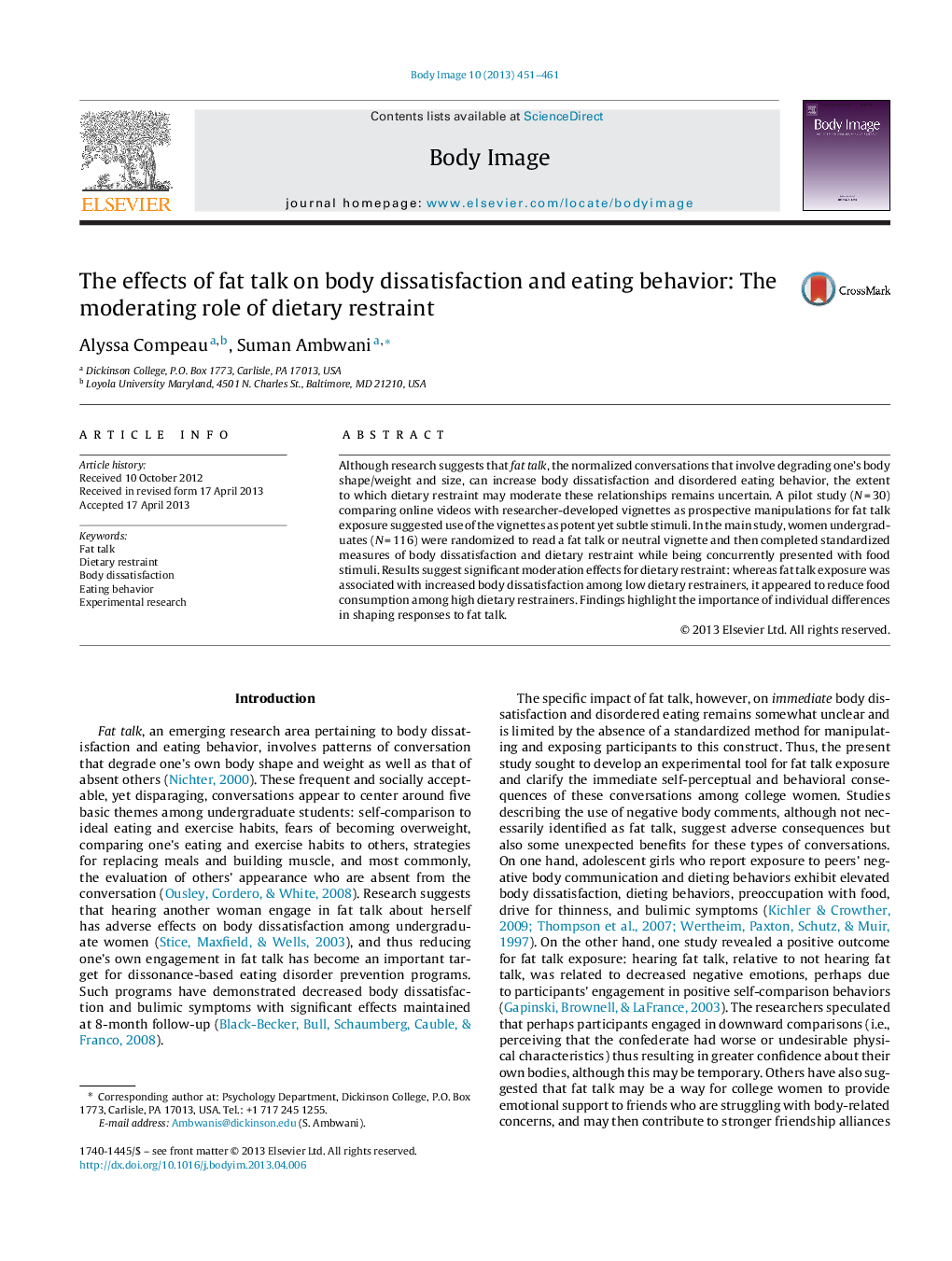| Article ID | Journal | Published Year | Pages | File Type |
|---|---|---|---|---|
| 902893 | Body Image | 2013 | 11 Pages |
•Participants were randomized to either a fat talk exposure or neutral condition.•Dietary restraint moderated the impact of fat talk on eating behavior and body dissatisfaction.•Results highlight the variable impact of fat talk due to individual differences.
Although research suggests that fat talk, the normalized conversations that involve degrading one's body shape/weight and size, can increase body dissatisfaction and disordered eating behavior, the extent to which dietary restraint may moderate these relationships remains uncertain. A pilot study (N = 30) comparing online videos with researcher-developed vignettes as prospective manipulations for fat talk exposure suggested use of the vignettes as potent yet subtle stimuli. In the main study, women undergraduates (N = 116) were randomized to read a fat talk or neutral vignette and then completed standardized measures of body dissatisfaction and dietary restraint while being concurrently presented with food stimuli. Results suggest significant moderation effects for dietary restraint: whereas fat talk exposure was associated with increased body dissatisfaction among low dietary restrainers, it appeared to reduce food consumption among high dietary restrainers. Findings highlight the importance of individual differences in shaping responses to fat talk.
